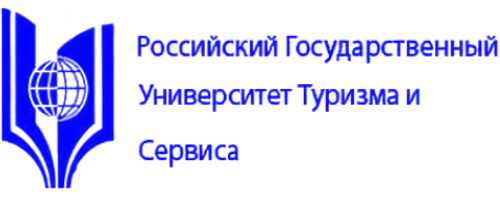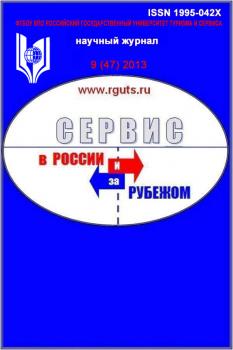The article analyzes the tourism industry development in Russian regions, taking into account the different approaches to the existing strategies of territorial planning in tourist and hotel spheres. The internal tourist market is dynamically growing and embraces new recreational destinations, however, the economic efficiency and investment activity of these territories still depends on the level of institutional development of the socio-economic system and inter-branch communications. Institutional regulation of the tourist territory, on the one hand, develops and promotes the investment attractiveness of tourist and recreational resources, and on the other hand, stimulates and regulates tourist flows. The subjects-participants of the interaction not only enhance competitiveness and brand recognition, but contribute to the effective promotion of territorial initiatives in the state and investment structures. The article also discusses various approaches to centralized strategy of the tourism industry within the framework of the unified Tourism Development Program in the Russian Federation. The author believes that the problem of forming tourism destinations and clusters, which are necessary for the integrated involvement of the territory in tourism, is multilevel in nature. It covers a wide range of issues starting with the stage of the forming and assessing the register of tourist and recreational resources and ending with the overall coordination of spatial planning. There is no uniform methodology for assessing territorial tourist resources and unambiguous approaches to observing the results of the social and economic activities of the tourist industry in destinations. Nevertheless, many regions have already formed conditions for increasing the mass tourist flow and the development of domestic and inbound tourism products. At the moment, there are some very vivid examples of the intensive attraction of tourist flows in destinations in a fairly short period of time; the article considers exactly such results
strategic planning in tourism; tourism destinations, tourism clusters in the regions
1. Wöber K.W. Information Supply in Tourism Management by Marketing Decision Support Systems // Tourism Management. 2003. №24(3). Pp. 241-255. DOI:https://doi.org/10.1016/s0261-5177(02)00071-7.
2. Mazanec J.A., Wöber K.W., Zins A.H. Tourism Destination Competitiveness: From Definition to Explanation? // Journal of Travel Research. 2007. №46(1). Pp. 86-95. DOI:https://doi.org/10.1177/0047287507302389.
3. Scharl A., Wöber K.W., Bauer C. An Integrated Approach to Measure Web Site Effectiveness in the European Hotel Industry // Information Technology & Tourism. 2003. Vol. 6(4). Pp. 257-271. DOI:https://doi.org/10.3727/1098305032781157.
4. Vladykina J., Faddeenkov A. The tourist flows formation features of domestic tourism in the Russian regions // Applied methods of statistical analysis. Nonparametric approach proceedings of the international workshop. Novosibirsk: NSTU, 2015. Pp. 338-343.
5. Vladykina J.O., Kazanskaya O.V. Information model of decision-making in management regional tourism // XI International forum on strategic technology (IFOST 2016): Proc. Novosibirsk: NSTU, 2016. Pt.1. Pp. 499-501.
6. Wang D., Fesenmaier D.R., Werthner H., Wöber K. The Journal of Information Technology & Tourism: A Content Analysis of the Past 10 Years // Journal of Information Technology and Tourism. 2010. Vol.12(1). Rp. 3-16. DOI:https://doi.org/10.3727/109830510x12747489979547.
7. Wolk A., Wöber K. Dimensions of Tourist Information Needs Across Different European Destinations According to Search Terms Entered on a Tourism-Specific Search Engine // Journal of Information Technology and Tourism. 2008. Vol.10(2). Pp. 119-131.
8. Aleksandrova A.Yu. Effektivnye marketingovye instrumenty prodvizheniya turistskih territoriy: opyt Ventspilsa // V mire nauchnyh otkrytiy. 2015. №5.8(65). S. 3067-3083.
9. Vladykina Yu.O., Kazanskaya O.V. Osobennosti razrabotki instrumentariya regional'noy politiki v sfere turizma (na primere NSO) // Vestnik NGUEU. 2014. №1. S. 226-236.
10. Vladykina Yu.O. Metodologicheskie osnovy sozdaniya turistsko-rekreacionnogo klastera v Novosibirskoy oblasti // V mire nauchnyh otkrytiy. 2015. №11.7(71). S. 2703-2720.
11. Morozov M., L'vova T. Destinaciya kak instrument formirovaniya konkurentnyh preimuschestv turistskogo regiona // Sovremennaya konkurenciya. 2012. №4. S. 105-116.
12. Pavlova E.N. Destinaciya kak koncept razvitiya regional'noy sistemy nepreryvnogo professional'nogo turistskogo obrazovaniya: Diss. … d-ra ped. nauk. M., 2010. 618 s.
13. Sarancha M.A., Rysin I.I. Rekreacionnyy potencial Udmurtskoy Respubliki: geograficheskiy analiz i ocenka s ispol'zovaniem geoinformacionnyh tehnologiy. Izhevsk: Associaciya «Nauchnaya kniga», 2007. 156 s.
14. Huden'kih Yu.A. Podhody k ocenke turistskogo potenciala territorii na primere rayonov Permskogo kraya // Geografiya i turizm: Sb. nauch. trudov. Vyp. 2. Perm': PermGU, 2006. S. 217-230.
15. Shishkin A.I., Shishkin A.A. Turizm v strategii razvitiya Respubliki Kareliya na period do 2020 goda // Rol' turizma v modernizacii ekonomiki rossiyskih regionov. Sb. nauch. statey po mater. mezhdunar. nauch.-prakt. konf. Petrozavodsk: KarNC RAN, 2010. C. 18-26.





